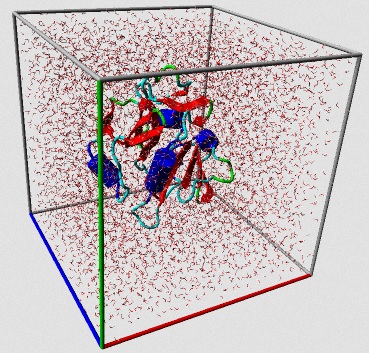Molecular Simulator Enables Study of Alzheimer's Therapeutics

Alzheimer’s disease is triggered by the accumulation of amyloid-β (small fragments of proteins) in the brain. Secretase inhibitors are drugs able to suppress the production of amyloid-β, but these drugs present possible side effects. By using a new molecular simulator, a group of scientists has investigated the possible therapeutic effects of curcumin, a substance found in the spice turmeric. The scientists analyzed the specific interactions occurring between curcumin and the amyloid precursor protein (the precursor molecule to amyloid-β). This new simulator will enable scientists to better understand the mechanisms of action of novel therapeutic compounds that may be useful to treating Alzheimer's disease.
References
- Ishimura H, Kadoya R, Suzuki T, Murakawa T, Shulga S, Kurita N. Specific interactions between amyloid-β peptide and curcumin derivatives: Ab initio molecular simulations. Chemical Physics Letters. 2015;633:139-145.








